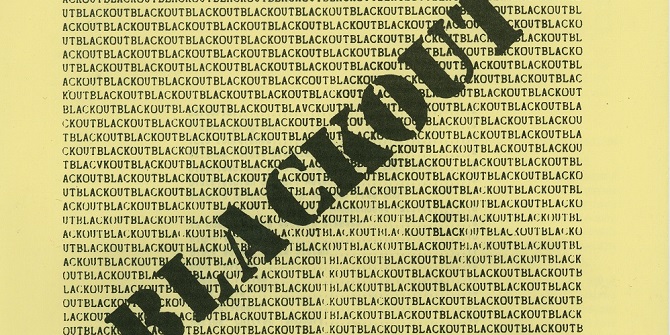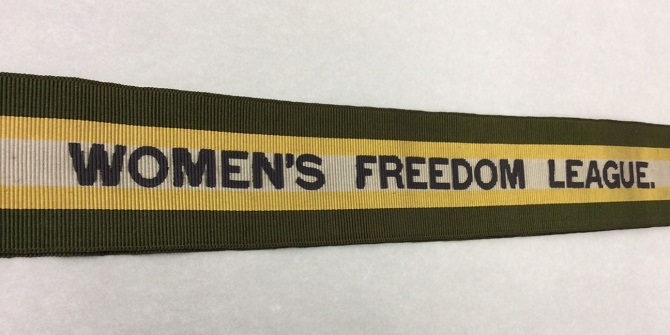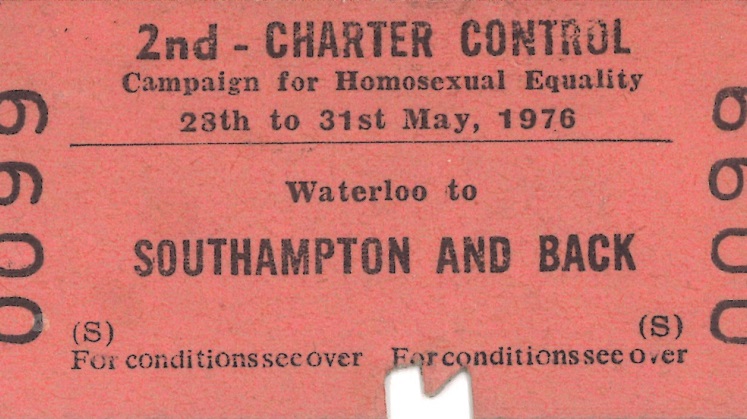Explore items from LSE Library’s archive of the radical journal Urania — now digitised and available online through LSE Digital Library.
Urania (1916-1940) was a radical journal that sought to erase the gender binary. It is now available through LSE Digital Library. We believe it to be the most complete collection of this privately circulated journal in the world and an important primary resource for anyone researching LGBTQ+ history.
The journal was founded by members of the Aëthnic Union, who believed that:
Society has split perfection into two, and imposes on the individual spirit conformity to one of two warped ideals: the stern masculine and the trivial feminine. – Aëthnic Union
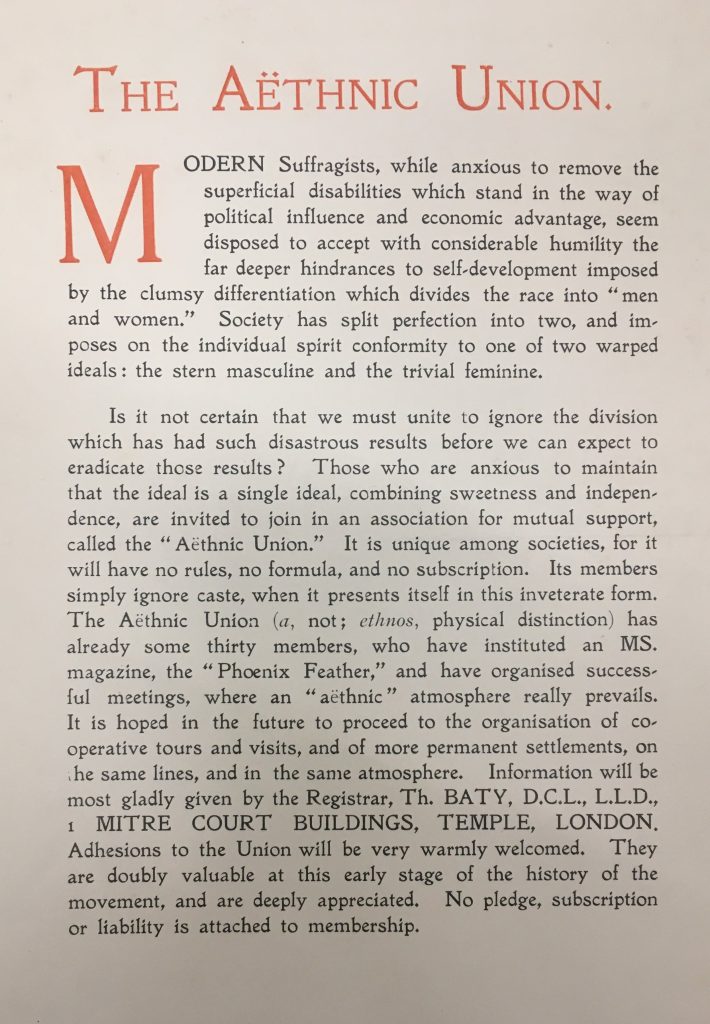
The first part of this text outlines the beliefs of the Aëthnic Union:
“Modern Suffragists, while anxious to remove the superficial disabilities which stand in the way of political influence and economic advantage, seem disposed to accept with considerable humility the far deeper hindrances to self-development imposed by the clumsy differentiation which divides the race into “men and women”. Society has split perfection into two, and imposes on the individual spirit conformity to one of two warped ideals: the stern masculine and the trivial feminine.
“Is it not certain that we must unite to ignore the division which has had such disastrous results before we can expect to eradicate those results? Those who are anxious to maintain that the ideal is a single ideal, combining sweetness and independence, are invited to join in an association for mutual support, called the ‘Aëthnic Union’.”
Thomas Baty had founded the short-lived Aëthnic Union in 1912 in order to break down these societal barriers.
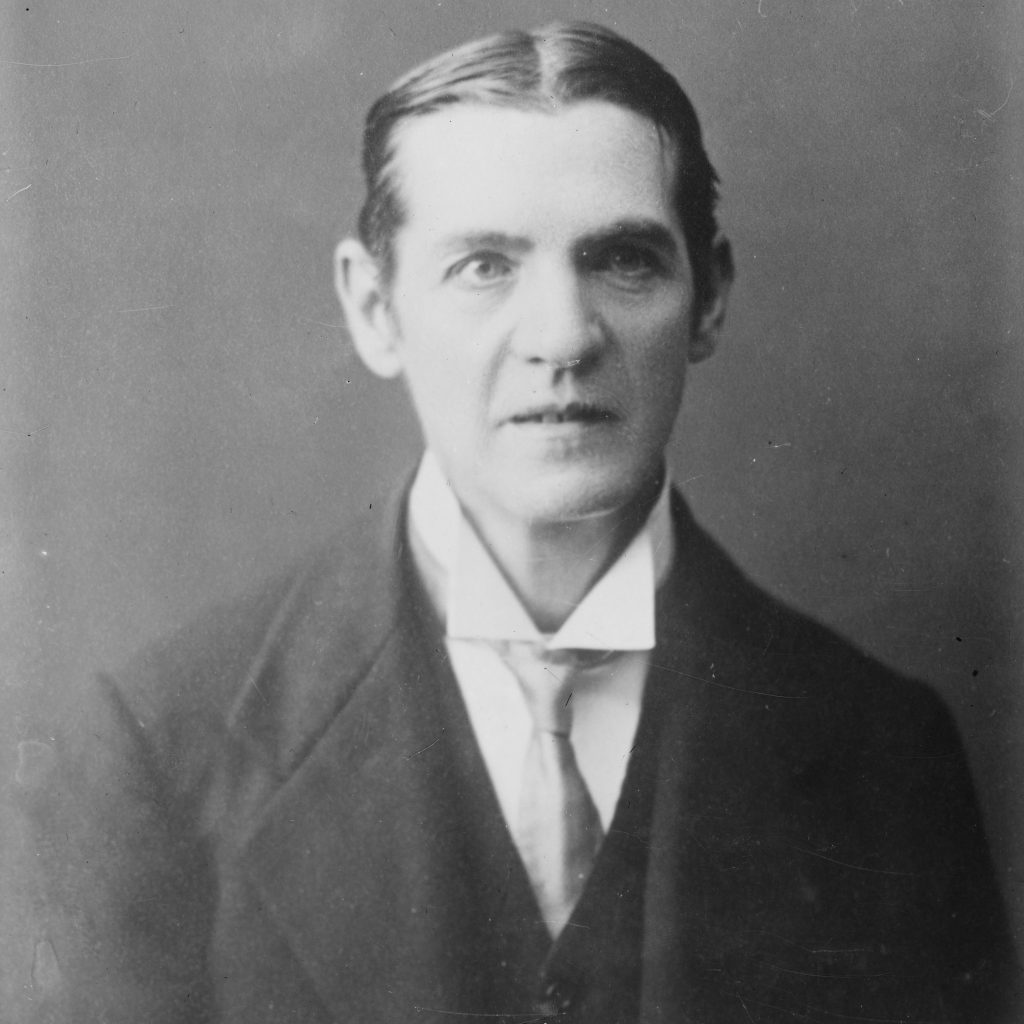
Eva Gore-Booth and Esther Roper, Jessey Wade and Dorothy Cornish were all members of the Aëthnic Union. In 1916, Thomas Baty, and this group of four, started a new journal Urania with the founding principle “There are no ‘men’ or ‘women’.” The journal ran until 1940.
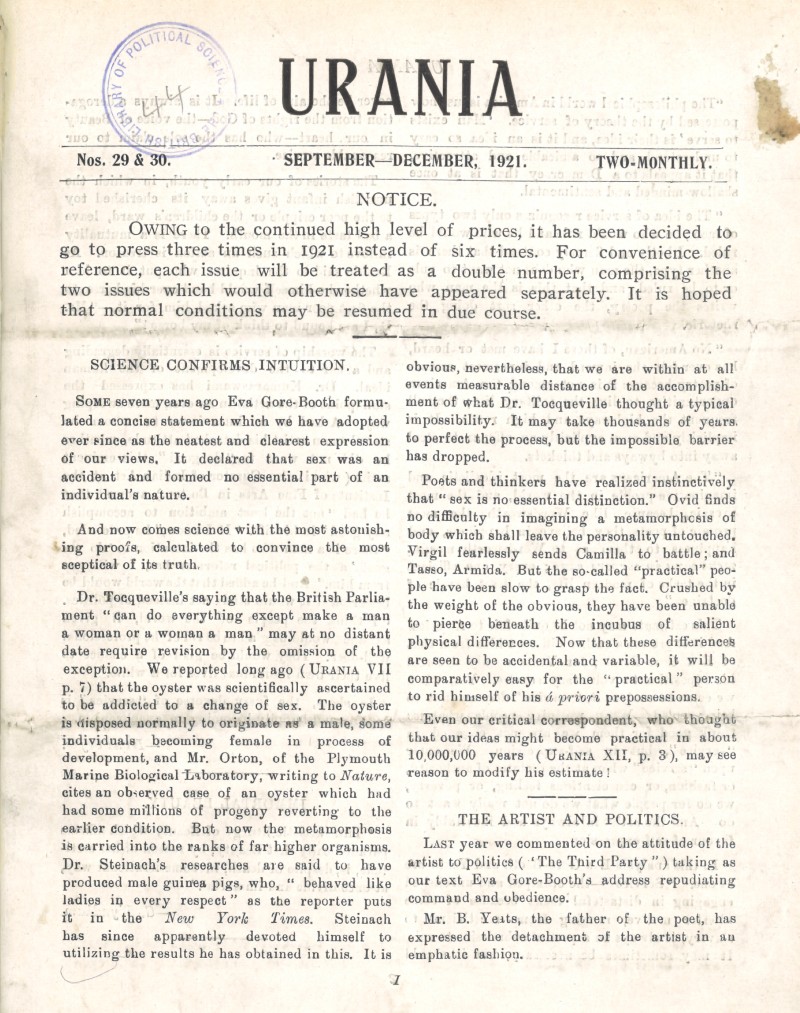
In 1934, Thomas Baty, as Irene Clyde, published Eve’s Sour Apples which explored the relationship between the sexes. Our copy in The Women’s Library has an inscription by Thomas Baty to friend M[ildred] A[nna] R[osalie] Tuker, whose archive we also hold.
![An inscription by Thomas Baty to friend M[ildred] A[nna] R[osalie] Tuker. Dated 12.11.34](https://blogsmedia.lse.ac.uk/blogs.dir/65/files/2023/11/FoSGTRRX0AI_rYI-1024x576.jpeg)
The location of Urania‘s archive today, at LSE Library on Portugal St, provides a sense of homecoming. While Thomas Baty’s address was given as Temple, within a short of walk of LSE’s campus, Jessey Wade worked at the publishing company George Bell & Sons at York House on 6 Portugal Street – another early neighbour of LSE.
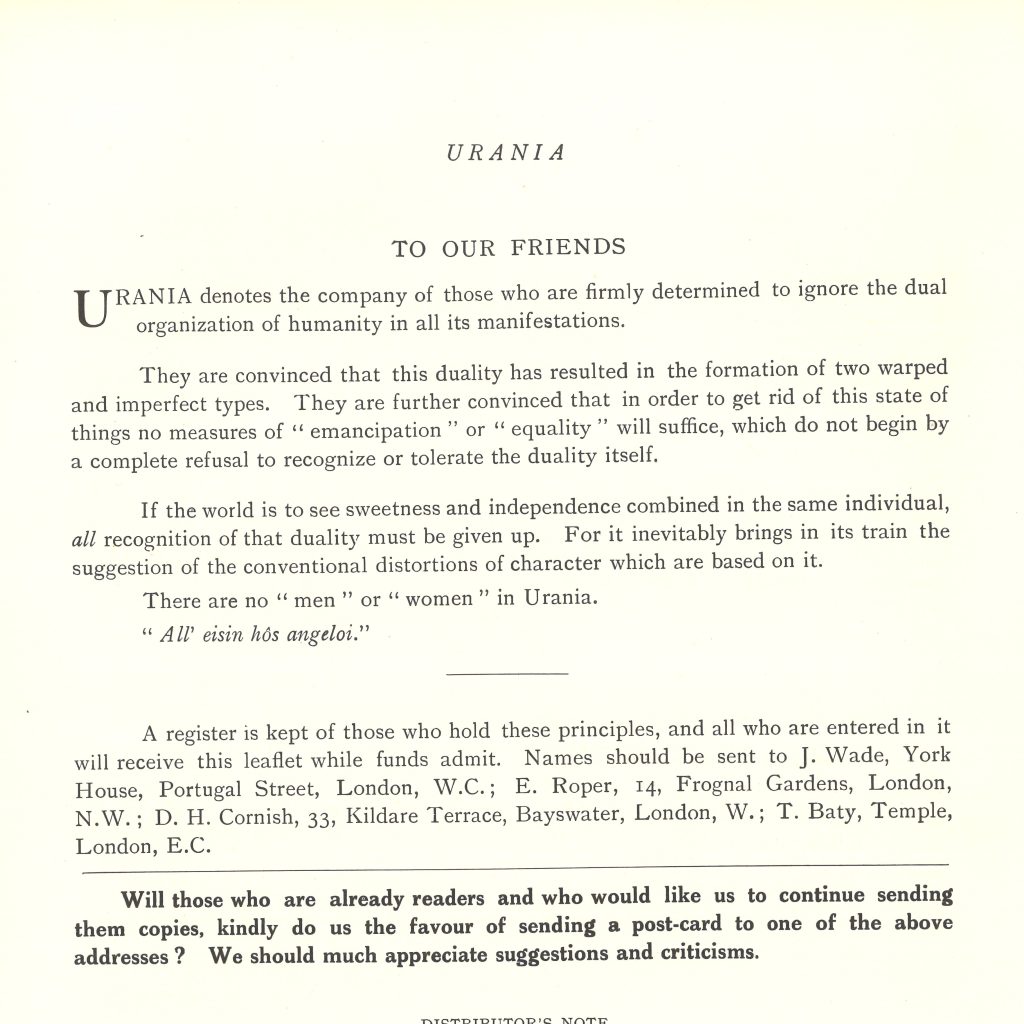
We are missing key issues from Urania‘s inaugural years (1916-1918) and invite individuals and collectors with access to issues 1-12 to come forward. Your contributions are crucial to achieving a complete historical archive of this ground-breaking journal. Contact us if you can help.
Read “Jenny White Reflects on the Legacy of Urania” on LSE Review of Books.
Find out more about The Women’s Library and LSE Library’s LGBT+ collection.


